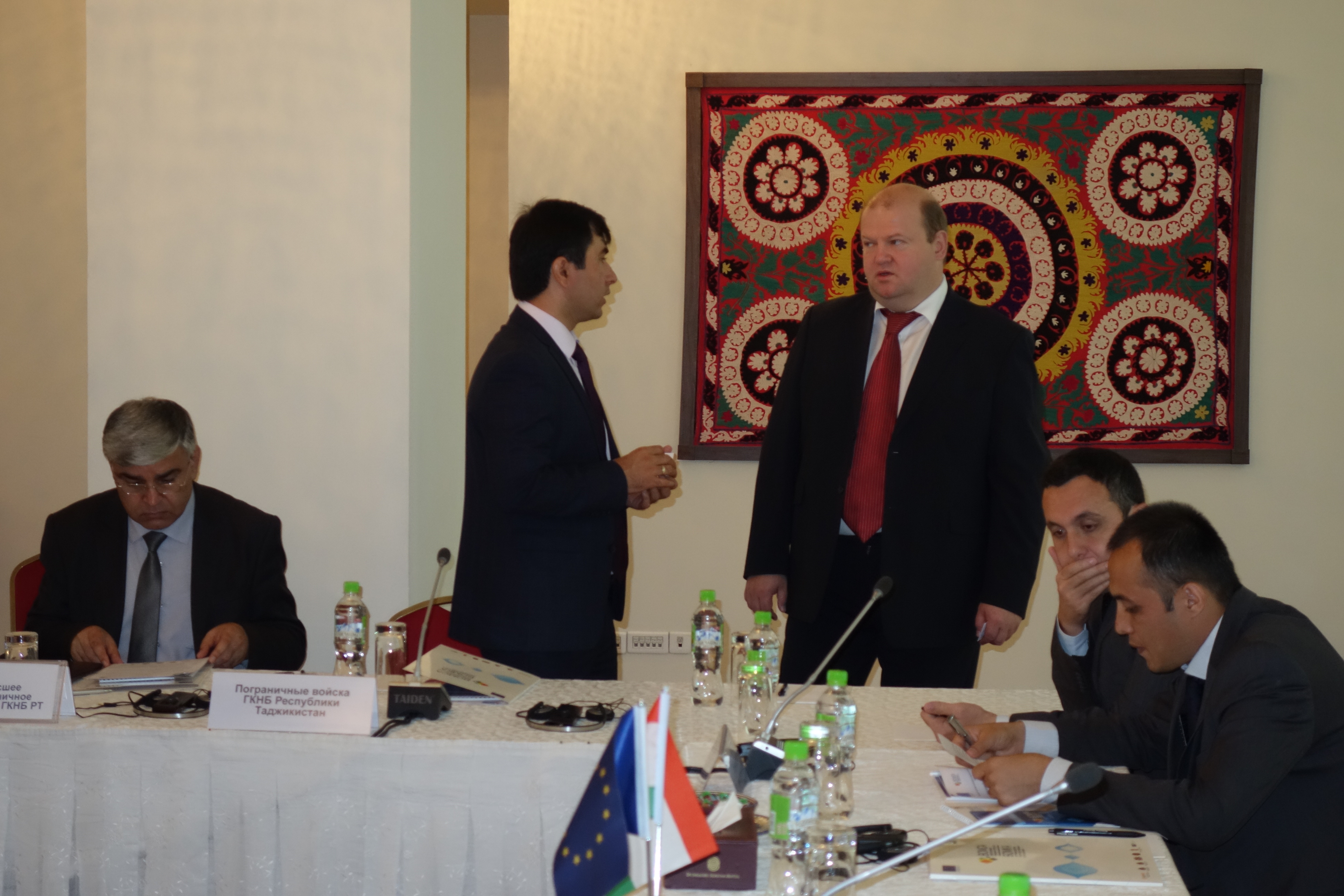On 20 June, the BOMCA Programme hosted the National Steering Group (NSG) meeting in Tajikistan, which gathered the main BOMCA national counterparts – the Ministry of Foreign Affairs, the Border Troops, the Customs Service, the Ministry of Interior, the Ministry of Labour, Migration and Employment, the State Inspection Service on Phyto-sanitary and Plant Quarantine and the State Service of Veterinary Control of the Ministry of Agriculture, and the State Sanitary-epidemiologic Service of the Ministry of Health and Social Protection, as well as representatives from the EU and the BOMCA programme consortium.
When welcoming the participants, Mr. Luca Carapelli, Project Manager at the EU Delegation highlighted that BOMCA is a unique programme in Central Asia that addresses the sensitive and delicate issues of border management, trade facilitation and migration. He also expressed appreciation for Tajikistan’s efforts in successful implementation of the IBM strategy, considering it a good sign for further success.
The purpose of the NSG meeting was to discuss implementation aspects of the BOMCA Programme, such as progress achieved, lessons learnt, and modalities of the future activities. The meeting was important not only in terms of discussing plans for the rest of the year, but also laid a foundation for further cooperation and established a forum for presentation of achievements, evaluation of results and valuable feedback from national partners. The participants acknowledged the substantial work done by Tajikistan in the area of border management and trade facilitation, in order to promote trade flows with neighbouring countries, but also to enhance security at border crossings.
“I would like to thank the organisers of the first NSG for the high level of organisation and the great depth content-wise. I hope today’s discussion was to the benefit of BOMCA 9 implementation in this country”, said Mr. Hokimiddin Rakhmonov, representative of the Department of Resolution of Territory and Cross-border Issues of the Ministry of Foreign Affairs.
NSGs consisting of representatives from the main national beneficiary agencies have been established in each of the five Central Asian countries. These meetings are held on a regular basis and represent an important coordination mechanism for implementation of the programme at the national level.

